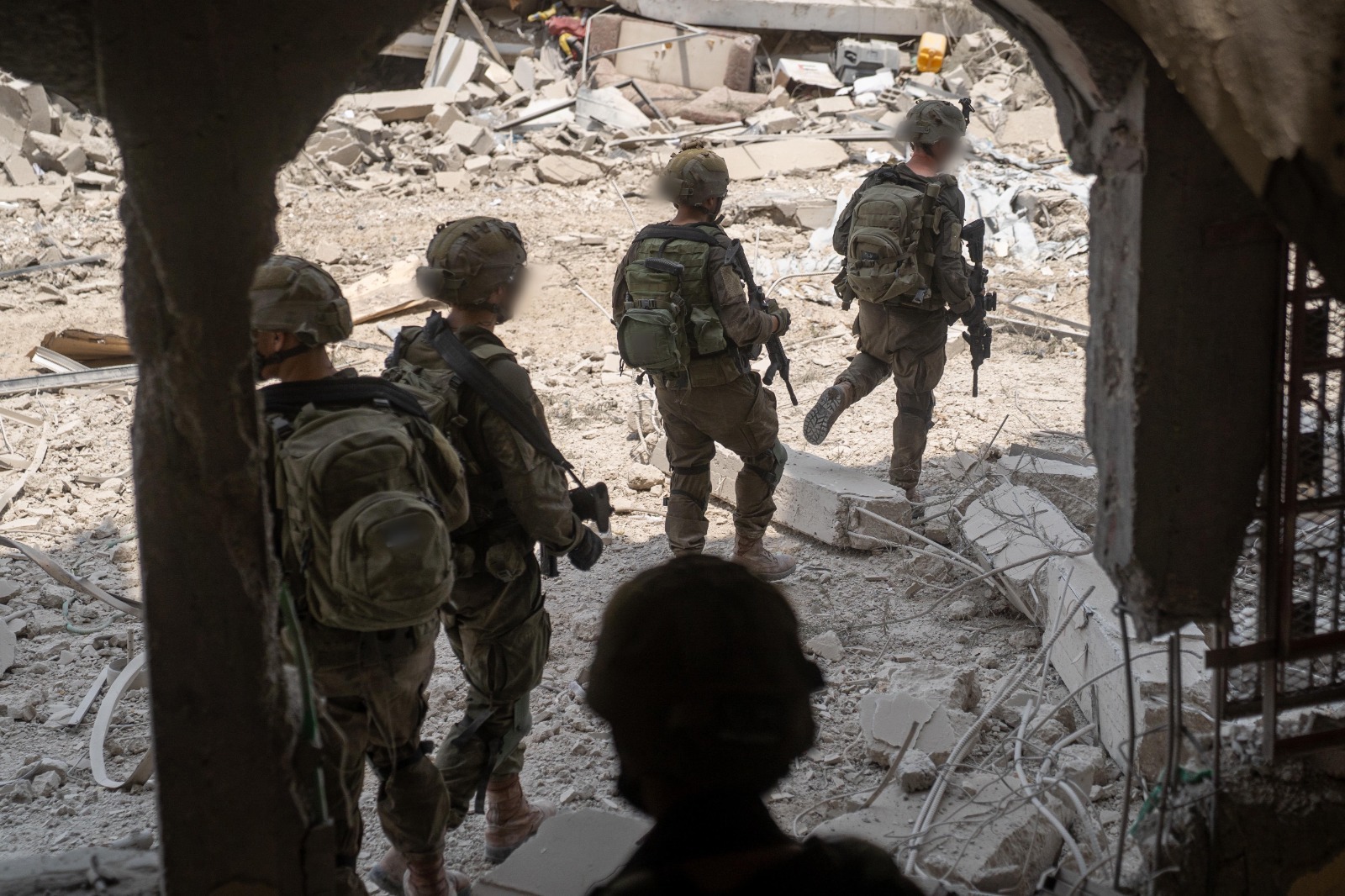By Oded J.K. Faran and Walter E. Block
A considerable number of commentators present themselves as supporters of Israel while simultaneously undermining the nation’s fundamental right to self-defense. These self-proclaimed allies advance arguments that, upon closer examination, reveal fundamental misunderstandings about the nature of warfare, moral responsibility, and the unprecedented challenges Israel faces. As the saying goes, “with friends like these, who needs enemies?”
The Claim: Israel Cannot Defeat Hamas
The Argument: These commentators assert that Israel’s inability to swiftly defeat Hamas demonstrates military inadequacy or strategic failure.
The Reality: This assessment fundamentally misunderstands both military history and the current operational environment. Israel’s military record speaks for itself. In 1967, the Israel Defense Forces defeated Egypt, a significantly more powerful adversary than Hamas, in merely six days. During the 1948 War of Independence, Israel overcame the combined armies of five nations: Egypt, Lebanon, Syria, Jordan, and Iraq. More recently, Israeli forces have successfully conducted precision operations against Iran, a nation of 90 million people with substantial military capabilities. Israel maintains the fourth most powerful military in the world according to global defense rankings.
The current conflict’s duration does not reflect military weakness but rather unprecedented operational constraints and enemy tactics. Several factors distinguish this conflict from previous wars:
Human Shield Tactics: Hamas has pioneered the systematic use of civilian populations as human shields on an unprecedented scale. No previous enemy of Israel, including Nazi Germany, employed such morally reprehensible tactics. Hamas deliberately positions military assets within schools, hospitals, and residential areas, transforming civilian infrastructure into military targets.
Humanitarian Restraint: Israel demonstrates extraordinary concern for enemy civilian casualties, even when such restraint costs Israeli lives. If Israel prioritized military efficiency over civilian protection, Gaza could be rendered uninhabitable within hours rather than months. This restraint has resulted in the deaths of 898 Israeli soldiers and 70 police officers, with 454 IDF troops killed specifically in ground operations designed to minimize civilian casualties.
Exceptional Civilian-to-Combatant Ratios: International military analysts note that conventional warfare typically produces nine civilian deaths for every combatant killed. Israel has achieved a ratio of approximately 1.5 civilians per combatant, a humanitarian achievement unmatched in modern urban warfare.
International Pressure: Israel operates under intense international scrutiny and pressure that constrains military operations. The United Nations has condemned Israel more frequently than all other nations combined, creating a diplomatic environment that limits operational flexibility.
Administrative Obstacles: The Biden Administration’s decision to withhold pre-paid military supplies has hampered Israeli operations, forcing reliance on existing stockpiles and alternative sources.
Internal Division: A minority of Israelis, including some who previously protested judicial reforms, have undermined national unity at a critical moment. This internal discord may have signaled weakness to enemies and contributed to the timing of the October 7 attacks.
The Claim: Gazans Are Suffering Unjustly
The Argument: Palestinian civilians in Gaza are experiencing undeserved hardship for which Israel bears significant responsibility.
The Reality: While any civilian suffering is regrettable, the responsibility for Palestinian casualties lies entirely with Hamas. Visual evidence contradicts claims of widespread starvation; Palestinian civilians seeking food assistance do not exhibit the emaciation characteristic of actual famine victims. In stark contrast, released Israeli hostages clearly show signs of severe malnutrition and abuse, providing a revealing comparison of treatment standards.
The moral calculus here is straightforward: had Hamas not initiated the October 7 attacks, no Palestinian civilians would be in danger. Even now, the immediate release of all hostages would end the conflict entirely. Hamas need not even surrender; merely returning the kidnapped victims would halt military operations.
The Claim: Israel Deliberately Targets Food Distribution
The Argument: Israeli forces systematically attack Palestinians attempting to receive humanitarian aid.
The Reality: This accusation contains an internal logical contradiction. If Israel had truly “cut off all food to Gaza” as these critics claim, how do they simultaneously argue that Gazans are queuing for Israeli-provided food? The premise undermines itself.
The actual situation involves Israeli forces facilitating humanitarian aid distribution while defending against attacks from the very civilians they are attempting to help. When large, unruly crowds form around aid distribution points, some individuals attack Israeli personnel. The IDF, having already lost numerous soldiers protecting these operations, responds in self-defense when attacked. International media then characterizes these defensive actions as “ambushes.”
For historical context, neither the United States nor Britain distributed food to German or Japanese civilians during World War II combat operations. Israel’s humanitarian efforts during active warfare represent an unprecedented standard of care for enemy populations.
The Claim: Israel Shares Responsibility for Palestinian Suffering
The Argument: While Hamas initiated the conflict, Israel’s response makes it partially culpable for ongoing Palestinian hardships.
The Reality: Israel bears no responsibility whatsoever for Palestinian civilian casualties. This position is not merely political rhetoric but reflects fundamental principles of moral responsibility. When Hamas launched its attack with overwhelming popular support—evidenced by widespread Palestinian celebrations—it assumed full responsibility for all subsequent consequences.
Consider this analogy: when a convicted murderer receives life imprisonment or capital punishment, leaving his children in difficult circumstances, who bears responsibility for their suffering? The criminal justice system that imposed the sentence, or the murderer whose actions necessitated it? The answer is self-evident: the criminal alone bears responsibility for all consequences of his crimes, including hardships faced by his dependents.
Similarly, when Hamas straps explosive devices to civilians and uses them as human shields while attacking Israeli forces, the moral responsibility for civilian deaths rests entirely with Hamas. Israeli forces defending themselves against such attacks bear no culpability for the tragic but inevitable results.
The Claim: Israel Is Killing Thousands of Innocent Children
The Argument: The deaths of Palestinian children constitute a war crime for which Israel must be held accountable.
The Reality: The death of any child is tragic, but moral responsibility must be correctly assigned. Hamas deliberately places children in harm’s way as part of its military strategy. This creates an impossible moral dilemma for Israeli forces: allow Hamas to continue using child soldiers and human shields, or act in self-defense knowing that Hamas’s tactics will result in civilian casualties.
Consider this scenario: A gunman straps three infants to his chest and charges at a family with a knife, shouting threats of murder. The intended victim has a gun and must choose between allowing the attacker to kill his family or shooting in self-defense, knowing the innocent children will also die. Who bears moral responsibility for the children’s deaths? The attacker who used them as shields, or the defender who was forced into an impossible choice?
Any reasonable analysis assigns full moral responsibility to the aggressor who created the situation. The defender acts in legitimate self-defense; the attacker commits murder by proxy. This principle applies directly to Hamas’s use of Palestinian children as human shields.
The “Friends” Identified
These problematic perspectives come from various quarters, including prominent media figures and cultural personalities. Notable examples include:
Media Commentators: Journalists like Thomas Friedman of The New York Times, who often present themselves as balanced analysts while consistently applying double standards to Israeli actions. Such commentators frequently demand Israeli restraint while downplaying Hamas’s deliberate targeting of civilians.
Entertainment Figures: Celebrities such as Mandy Patinkin, who use their platforms to advance superficially sympathetic but ultimately harmful narratives about Israeli actions. These figures often lack substantive knowledge of military operations or international law but command significant public attention.
Academic Voices: Various university professors and think tank analysts who position themselves as moderate voices while consistently undermining Israel’s legitimacy and right to self-defense. These individuals often employ sophisticated rhetoric to mask fundamentally biased positions.
Political Commentators: Pundits like Bret Stephens, who present themselves as conservative supporters of Israel while consistently advocating for policies that would handicap Israeli military effectiveness and strategic autonomy.
International Organizations: United Nations officials and other international bureaucrats who claim neutrality while systematically condemning Israel more than all other nations combined, creating a distorted moral framework that legitimizes aggression against the Jewish state.
These “friends” share common characteristics: they acknowledge Israel’s right to exist while simultaneously undermining its ability to defend that existence. They express concern for Israeli security while demanding constraints that would make effective defense impossible. They claim moral authority while applying standards to Israel that no other nation would be expected to meet.
The Test of True Friendship
True friendship requires honest assessment and genuine support during difficult times. Israel’s actual friends recognize that the nation faces unique challenges and threats that require understanding rather than facile moral equivalencies. They acknowledge that in a conflict initiated by terrorists who deliberately maximize civilian casualties, the moral responsibility lies entirely with the aggressors.
The current conflict will end when Hamas releases all hostages and ceases its attacks on Israeli civilians. Until that occurs, Israel has not only the right but the obligation to continue military operations necessary for its defense. Those who truly support Israel’s security and survival will recognize this reality rather than advancing arguments that serve only to strengthen Israel’s enemies while weakening its defenders.
References
Military Rankings: Staff, TOI. 2023. “Israel ranks among 10 most powerful countries in annual list; 4th strongest military.” Times of Israel, January. https://www.timesofisrael.com/israel-among-10-most-powerful-countries-in-the-world-in-annual-list/
Casualty Statistics: “Authorities name 898 soldiers, 70 police officers killed in Gaza war.” Times of Israel. https://www.timesofisrael.com/authorities-name-44-soldiers-30-police-officers-killed-in-hamas-attack/
Civilian-to-Combatant Ratios: Block, Walter E. 2024. “Israel has the lowest proportion of civilians killed in war compared to soldiers; is it time for a change?” Israpundit, December 21. https://www.israpundit.org/israel-has-the-lowest-proportion-of-civilians-killed-in-war-compared-to-soldiers-is-it-time-for-a-change/
UN Bias Documentation: Tress, Luke. 2023. “UN condemned Israel more than all other countries combined in 2022. General Assembly resolution backing ICJ probe capped year that saw 15 anti-Israel measures, compared to 13 against rest of world, reinforcing claims of bias at Turtle Bay.” Times of Israel, January. https://www.timesofisrael.com/un-condemned-israel-more-than-all-other-countries-combined-in-2022-monitor/
Walter E. Block, Ph.D. is the Harold E. Wirth Eminent Scholar Endowed Chair and Professor of Economics at Loyola University, New Orleans.
Oded J.K. Faran holds LL.B. and LL.M. degrees in law from Sha’arei Mishpat College in Israel. He is the General Director of Faran & Co. International Translations Ltd. and lives in Tbilisi, Georgia. He is the author of Jacob’s Ledger, a blog focused on the intersections of economics, law, and geopolitics, aimed at professionals who value clear thinking and grounded analysis.








One Response
Can you be more specific about the content of your article? After reading it, I still have some doubts. Hope you can help me.